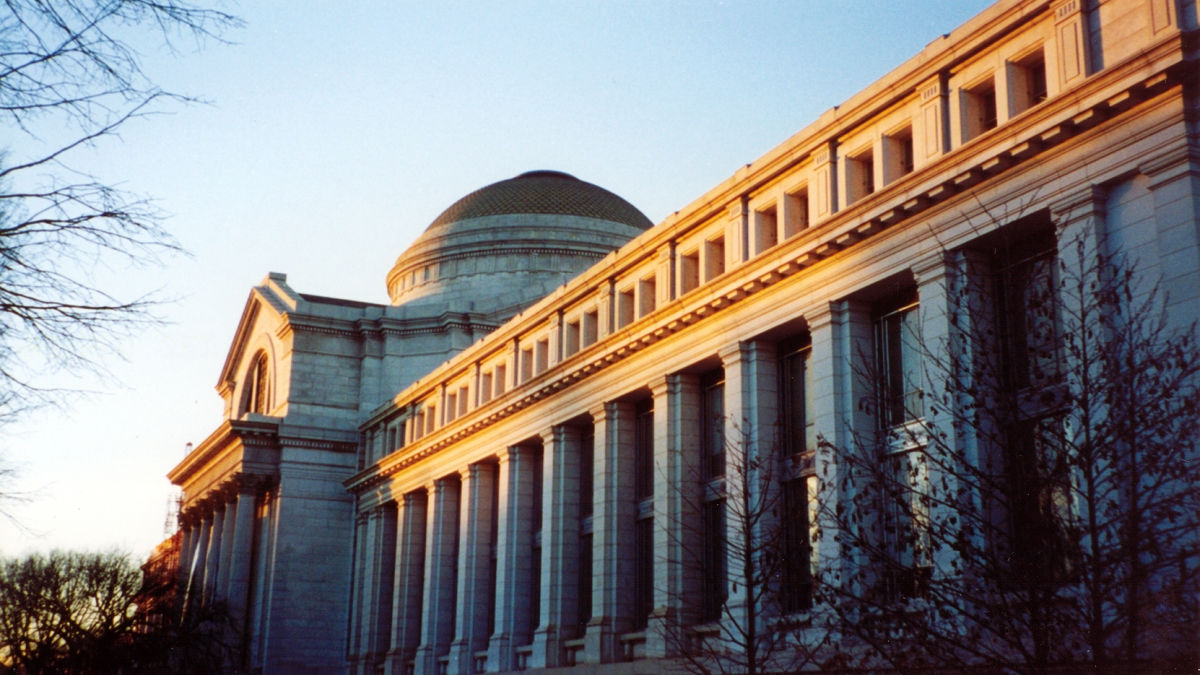Museums can get a bad rap, seen simply as static storage for the past.
But Richard Kurin of the Smithsonian Institution said they also hold the key to our future.
“The Smithsonian used to have this moniker, this nickname, ‘the nation’s attic.’ Imagine any dusty museum with all sorts of dust-ridden things and boring exhibits and you get bored and you fall asleep,” said Kurin, the Smithsonian’s undersecretary of history, art and culture.
“It really never was that, but now we find that items in our collections are actually keys to understanding the planet.”
The Smithsonian’s specimens represent a biopsy of Earth, Kurin said, allowing us to compare what’s happening now with regard to — for example — climate change with what the planet was like 100 years ago, or 100 million years ago.
Kurin visited Phoenix this fall as part of the Sandra Day O’Connor Institute’s Distinguished Speaker Series, where he shared more than 100 images of curated items and a wealth of knowledge with a sold-out crowd.
“Our resources give us a kind of encyclopedia of the American experience in all its diversity,” he said in an interview with ASU Now. “And the idea is how to use that. Americans have a very active dialogues with each other; we’re trying to figure out who we are as a people, how we get along.”
Part of that mission is bringing those resources to people around the country — not just at the Smithsonian’s museums in Washington, D.C. — to encourage that discourse. One of the public programs the Smithsonian is involved with is Zócalo Public Square, an affiliate of Arizona State University.
Zócalo Public Square is an ideas exchange that blends live events and humanities journalism, providing a nonpartisan space to tackle fundamental issues.
“We’re investigating the whole idea of what is it to be American, and how do you look at that and answer that question. That is not a textbook answer,” Kurin said.
“That answer is written in the experience and the words and the hearts and the souls and spirits of people. This is an attempt, with ASU, to hold public forums, get that word out … so that people around this country can get a glimmer into someone else’s world.”
The ASU-Smithsonian collaboration is long-standing and includes:
- The School of Life Sciences’ partnership with the Smithsonian Tropical Research Institute;
- The Zócalo Public Square collaboration with the National Museum of American History on the national conversation “What It Means to Be an American”;
- And work with the Museum on Main Street team and the ASU Decision Center for a Desert City on a public version of the WaterSim model for an upcoming traveling Water/Ways exhibit.
The Sandra Day O’Connor Institute, whose mission is to create a nation where important policy decisions are made through a process of civil discussion, critical analysis and the informed participation of all citizens, shares a rich past with ASU, including such events at the 2012 visit by former Soviet President Mikhail Gorbachev. In the fall of 2016, the O’Connor Institute will relocate to the new Arizona Center for the Law and Society building on the downtown Phoenix campus.
In a time of urban unrest, museums and educational spaces can offer a neutral, non-threatening zone for getting at the roots of issues, Kurin explained.
“The one thing about American democracy, you know, it’s wampus, it’s not clean, it’s always in the making, it’s always developing,” he said. “I look at that museum as a place where some of these issues — from Ferguson and Baltimore, New York, Staten Island — some of these cases that have come up, where a museum can provide that kind of neutral, civic space for civic discussion and understanding.”
More University news

ASU community exceeds goal, raises $835K for Valley of the Sun United Way
The Arizona State University community stepped up and raised over $835,266 for the Valley of the Sun United Way — exceeding the $800,000 goal for 2024.Of the total, $802,192.17 was raised through…

ASU launches online ocean futures undergraduate degrees
Our oceans make up three quarters of the planet’s surface and contain most of its biodiversity. Due to rapid and global changes, they are endangered — making more urgent a deeper knowledge of ocean…

ASU public affairs graduate programs rise to No. 11 in nation in US News & World Report’s 2025 rankings
Arizona State University rose to No. 11 nationwide for best graduate public affairs programs in U.S. News & World Report’s 2025 rankings, the magazine announced.The ranking, released April 8,…


